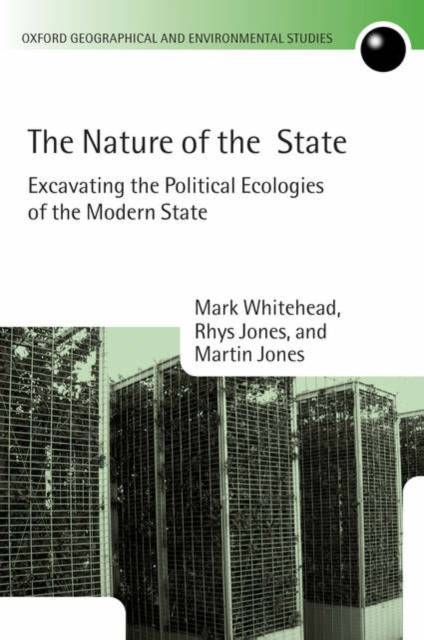
- Afhalen na 1 uur in een winkel met voorraad
- Gratis thuislevering in België vanaf € 30
- Ruim aanbod met 7 miljoen producten
- Afhalen na 1 uur in een winkel met voorraad
- Gratis thuislevering in België vanaf € 30
- Ruim aanbod met 7 miljoen producten
Zoeken
The Nature of the State
Excavating the Political Ecologies of the Modern State
Mark Whitehead, Rhys Jones, Martin Jones
€ 290,45
+ 580 punten
Omschrijving
The twin categories of the state and nature collectively embody some of the most fundamental reference points around which our lives and thinking are organized. Despite their combined significance, however, the complex relationships that exist between modern states and nature remain under-theorized and are relatively unexplored. Through a detailed study of different sites, moments, and framing strategies The Nature of the State challenges the ways in which geographers and social scientists approach the study of state-nature relations. The authors analyse different instances of state-nature interaction from all over the world, considering the geo-politics of resource conflicts, the operation of natural history museums, the organizational practices of environmental departments and ministries, the regulation of genetic science, and contemporary forms of state intervention within issues of climate change. Introducing original research into the different institutional, spatial, and temporal strategies used by states to frame the natural world this book provides a critical overview of the latest political and ecological theories and addresses a wide range of pressing socio-environmental debates.
Specificaties
Betrokkenen
- Auteur(s):
- Uitgeverij:
Inhoud
- Aantal bladzijden:
- 256
- Taal:
- Engels
- Reeks:
Eigenschappen
- Productcode (EAN):
- 9780199271894
- Verschijningsdatum:
- 5/04/2007
- Uitvoering:
- Hardcover
- Formaat:
- Genaaid
- Afmetingen:
- 156 mm x 234 mm
- Gewicht:
- 530 g

Alleen bij Standaard Boekhandel
+ 580 punten op je klantenkaart van Standaard Boekhandel
Beoordelingen
We publiceren alleen reviews die voldoen aan de voorwaarden voor reviews. Bekijk onze voorwaarden voor reviews.











